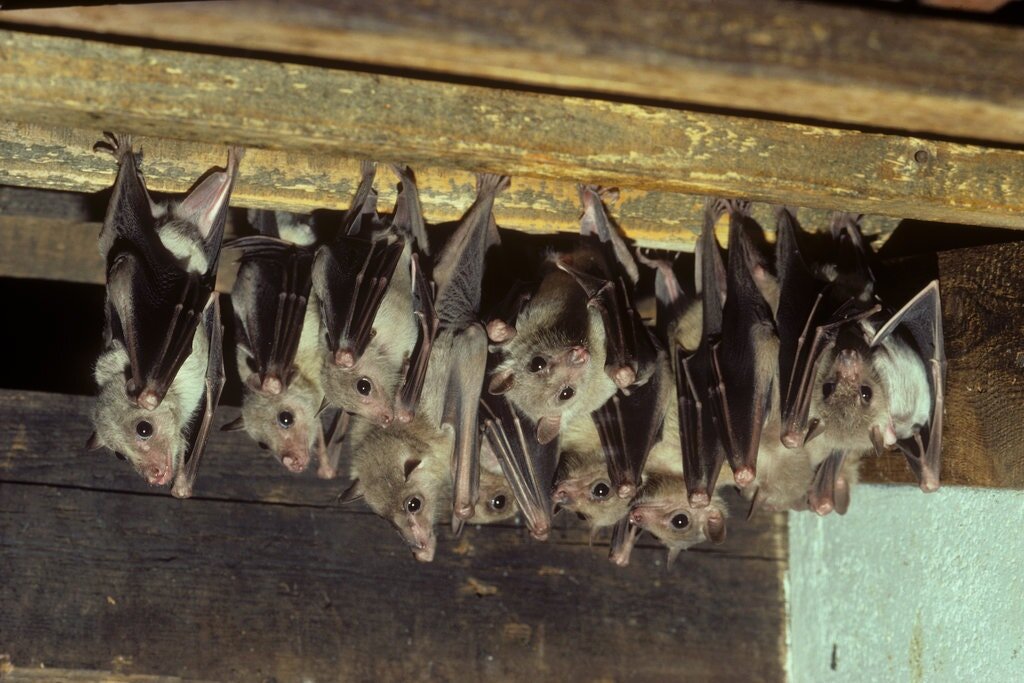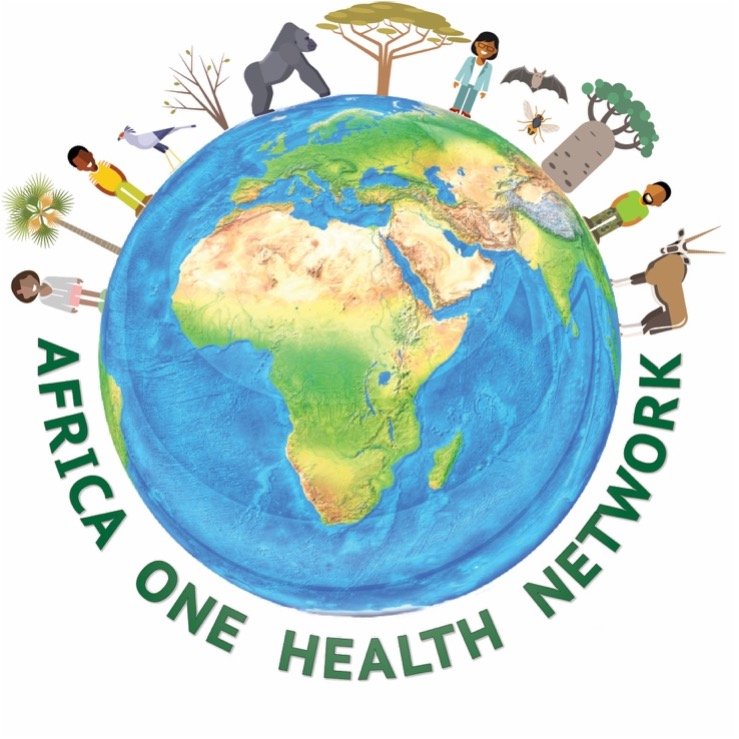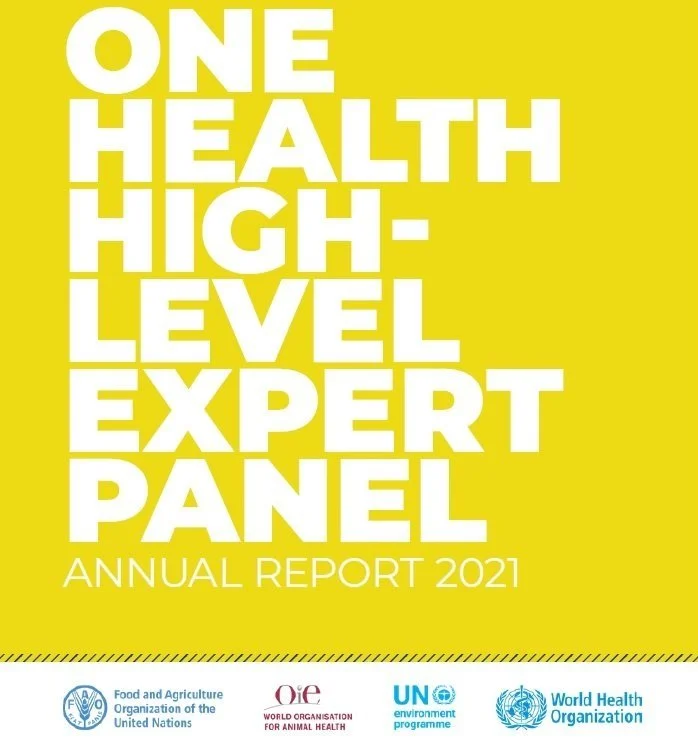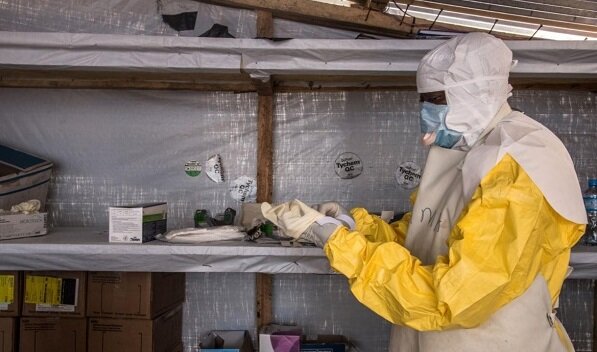NEWS
Multi-country monkeypox outbreak declared a global Public Health Emergency of International Concern
“Since the beginning of 2022, a total of 2,031 cases (250 confirmed; 1,781 suspected) and 75 deaths (CFR: 3.7%) of monkeypox have been reported in Africa from nine endemic and two non-endemic AU MS.”
Africa CDC [25 July 2022]
Africa CDC organizes first training on Real-Time PCR-based Monkeypox virus (MPXV) testing for 20 African Union Member States
On 28 June 2022, the Africa CDC in partnership with Nigeria Centre for Disease Control (NCDC) and the African Society for Laboratory Medicine (ASLM) launched the first in a series of hands-on training on real-time PCR-based monkeypox virus (MPXV) diagnosis held at the NCDC National Reference Laboratory in Abuja, Nigeria.
One Health High Level Expert Panel (OHHLEP) releases annual report for 2021
The One Health Zoonotic Disease Prioritization (OHZDP) process brings together representatives from human, animal, and environmental health sectors, as well as other relevant partners, to prioritize zoonotic diseases of greatest concern for multisectoral, One Health collaboration in a country, region, or other area. This process uses a transparent approach and incorporates equal input from all represented One Health sectors working at the human-animal-environment interface.
One Health Zoonotic Disease Prioritization (OHZDP)
Tripartite (FAO, OIE, WHO) and UNEP support OHHLEP’s definition of “One Health”
“One Health is an integrated, unifying approach that aims to sustainably balance and optimize the health of people, animals and ecosystems.
It recognizes the health of humans, domestic and wild animals, plants, and the wider environment (including ecosystems) are closely linked and inter-dependent.
The approach mobilizes multiple sectors, disciplines and communities at varying levels of society to work together to foster well-being and tackle threats to health and ecosystems, while addressing the collective need for clean water, energy and air, safe and nutritious food, taking action on climate change, and contributing to sustainable development.”

South Africa’s cave-dwelling bats need more protection – to keep people safe too
“The destruction of natural habitats brings humans into closer contact with wild animals, such as bats, which may lead to future outbreaks of zoonotic diseases” Dr. Mariette Pretorius
Source: The Conversation/Image: Dr. Mariette Pretorius

The first human case of Marburg virus in West Africa is no surprise: here’s why
The first case of fatal Marburg virus disease was identified in Guinea, West Africa on 9 August 2021. Marburg is a highly infectious zoonotic haemorrhagic fever transmitted to people from fruit bats, specifically the Egyptian Rousette bat (Rousettus aegyptiacus). It spreads among humans through direct contact with the bodily fluids of infected people, surfaces, and materials.
No cases have previously been reported in West Africa.
Source: The Conversation/Image: Tom McHugh
Republic of Guinea confirmed death relating to Marburg Virus Disease (MVD)
The Republic of Guinea through its Ministry of Health (MoH) reported a confirmed death due to Marburg virus disease (MVD) in the southern Guéckédou prefecture. This marks the first report of MVD in the country and the Western Africa Region.
Source: Africa CDC

The ongoing debate on the origins of the Covid-19 virus
“looking for more viruses in nature could yield more information about the origin of Covid-19” Prof. Wanda Markotter
Source: The Coronavirus Pandemic/Image: AFP
The first and second waves of the COVID-19 pandemic in Africa: a cross-sectional study
“Although the first wave of the COVID-19 pandemic progressed more slowly in Africa than the rest of the world, by December 2020, the second wave appeared to be much more aggressive with many more cases. To date, the pandemic situation in all 55 African Union (AU) Member States has not been comprehensively reviewed. We aimed to evaluate reported COVID-19 epidemiology data to better understand the pandemic’s progression in Africa.”
Source: The Lancet
New Ebola outbreak declared in Guinea
Health authorities in Guinea today declared an outbreak of Ebola in the rural community of Gouéké in N’Zerekore prefecture after three Ebola cases were confirmed by the national laboratory, marking the first time the disease has been reported in the country since an outbreak ended in 2016. Initial investigations found that a nurse from the local health facility died on 28 January 2021. Following her burial, six people who attended the funeral reported Ebola-like symptoms and two of them have died, while the other four have been hospitalized.
Source: WHO/Image: WHO/Junior D. Kannah
Framework for One Health Practice in National Public Health Institutes
The purpose of this framework is to provide a set of minimal objectives, proposed activities and focused guidance that NPHIs and MoHs should adopt in order to address priority zoonotic diseases. It further highlights how One Health approaches strengthen collaboration between relevant sectors to control these shared health threats. This document aligns with the current Africa Centres for Disease Control and Prevention Strategic Plan (2017–2021) 39 and its focus on NPHIs.
Source: Africa CDC
The One Health landscape in sub-Saharan African countries
To inform the establishment of the One Health Research, Education and Outreach Centre in Africa (OHRECA), the International Livestock Research Institute (ILRI) commissioned a review of One Health activities and initiatives across sub-Saharan Africa with a view to contributing to the emerging issues in One Health in Africa. With funding and co-organization from the Federal Ministry for Economic Cooperation and Development (BMZ), Germany, ILRI was positioned to utilize the opportunity to co-host the OHRECA in the continent. The center’s activities focus on four major themes including neglected tropical zoonotic diseases, emerging infectious diseases (EIDs), food safety and antimicrobial resistance.
Source: ILRI
Epidemiology and Clinical Presentation of West Nile Virus Infection in Horses in South Africa, 2016–2017
Although West Nile virus (WNV) is endemic to South Africa (RSA), it has only become recognized as a significant cause of neurological disease in humans and horses locally in the past 2 decades, as it emerged globally. This article describes the epidemiological and clinical presentation of WNV in horses across RSA during 2016–2017. In total, 54 WNV-positive cases were identified by passive surveillance in horses with febrile and/or neurological signs at the Centre for Viral Zoonoses, University of Pretoria. They were followed up and compared to 120 randomly selected WNV-negative controls with the same case definition and during the same time period.
Source: MDPI
Therapeutic options for COVID-19: A quick review
Since the announcement by the World Health Organization (WHO) of an outbreak of a contagious respiratory viral pneumonia in Wuhan, China, in December 2019 (later named COVID-19), several research works have been carried out to unstitch the therapeutic options and combat the disease using various approaches and modalities. These works are currently at different clinical trial stages, and their results may be determined by the outcome of the ongoing trial process. There is a need for a collection of information regarding the available therapeutic options related to COVID-19.
Source: Journal of Chemotherapy
Could New COVID Variants Undermine Vaccines? Labs Scramble to Find Out
As concern grows over faster-spreading variants of coronavirus, labs worldwide are racing to unpick the biology of these viruses. Scientists want to understand why SARS-CoV-2 variants identified in the United Kingdom and South Africa seem to be spreading so quickly, and whether they might diminish the potency of vaccines or overcome natural immunity and lead to spate of reinfections.
Source: Nature











